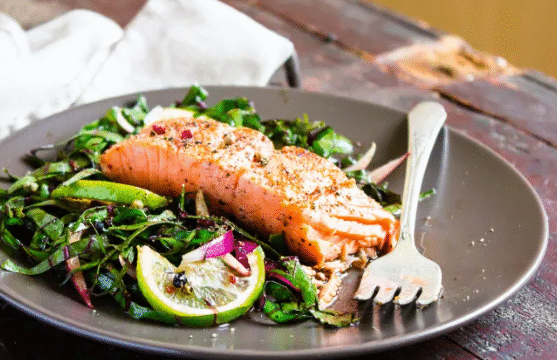Staying strong, both physically and mentally, is one of the most rewarding parts of living a healthy lifestyle. Strength is not only about lifting heavy weights or performing intense workouts—it is also about maintaining consistent habits that support your well-being day by day. Everyday fitness goals that keep you strong are often simple actions that build endurance, stability, and confidence over time. They help you feel more capable in your daily life and remind you that progress is a steady journey, not a race.
Building strength begins with understanding what it truly means to be strong. It is not just about muscle size or speed, but about balance, control, and resilience. Being strong means you can move comfortably, support your body’s needs, and handle daily tasks with ease. It also means having the energy and mindset to keep going when challenges arise. Everyday goals that support strength are designed to fit naturally into your life, encouraging consistency without pressure.
One of the most effective everyday fitness goals is to move regularly throughout the day. You do not need to commit to long workout sessions to make a difference. Even ten to fifteen minutes of stretching, walking, or light exercise can have a powerful effect on your strength and energy. Movement keeps your muscles active, your joints flexible, and your blood flowing smoothly. Simple routines such as taking the stairs instead of the elevator or going for a short walk after meals can build lasting strength over time. The key is consistency—regular movement helps your body stay strong and adaptable.
Another important goal is to focus on body awareness. Paying attention to posture, balance, and alignment helps you move more efficiently and safely. Small changes, such as sitting upright, standing tall, or engaging your core during daily activities, strengthen your muscles in subtle yet meaningful ways. Over time, these habits improve stability and reduce the risk of fatigue or strain. Awareness of how your body feels and moves helps you build strength mindfully rather than forcefully.
In addition to movement, nutrition plays a key role in everyday strength. The food you eat fuels your muscles, supports recovery, and provides the energy you need to stay active. Setting small, friendly goals around eating well can make a big difference. This might include adding more colorful vegetables to your meals, staying hydrated, or choosing balanced portions that satisfy your hunger without leaving you tired. These simple habits help your body stay nourished and ready for activity. When you eat with awareness and care, you strengthen your body from the inside out.
Rest is another essential element of building strength. Many people underestimate the power of recovery, but your muscles and mind need time to repair and recharge. Making it a goal to get enough sleep or to take short breaks during the day can help prevent burnout and improve your overall performance. Quality rest helps your body grow stronger, both physically and mentally. Without proper rest, even the best exercise routine can lead to fatigue or imbalance. Treating rest as part of your strength-building plan ensures that your progress is steady and sustainable.
Mental strength is just as important as physical strength. Setting goals that support your mindset can help you stay confident and consistent. This might mean starting each day with a positive thought, practicing gratitude, or reminding yourself of how far you have come. Confidence and patience help you stay focused, especially when progress feels slow. Remember that every small action contributes to your overall strength, even on days when motivation feels low. Building mental resilience helps you handle challenges with calm and determination.
Another simple yet powerful goal is to stretch your body regularly. Stretching keeps your muscles flexible, improves circulation, and reduces tension. Whether you stretch in the morning to wake up your body or in the evening to relax, this gentle habit supports strength by improving mobility and preventing stiffness. Flexibility and strength go hand in hand—when your muscles move freely, you perform better in all types of activities.
Maintaining strong relationships and a supportive environment also contributes to overall strength. Connecting with others who share your interest in health and fitness can keep you motivated and inspired. You might join a local walking group, attend a fitness class, or simply share your goals with a friend. Supportive social connections create accountability and encouragement, which strengthen your commitment and confidence.
It’s also helpful to remember that everyday strength does not come from doing everything perfectly. Some days will be more active than others, and that’s completely natural. The most important thing is to keep showing up for yourself. If you miss a workout, choose another small action that supports your strength, like eating a balanced meal or taking time to rest. These moments of kindness and flexibility keep your routine enjoyable and sustainable.
A valuable goal for long-term strength is to stay curious about your body’s abilities. Try new forms of movement or activities that challenge you in fresh ways. This might include swimming, cycling, yoga, or even dancing. New experiences keep your fitness journey exciting and help your muscles develop balance and coordination. When you explore different types of movement, you discover new sources of motivation and confidence.
Strength also grows through consistency in daily habits. Drinking enough water, eating nourishing foods, sleeping well, and staying active might seem small on their own, but together they create a foundation of well-being. When you treat these habits as gentle commitments rather than strict rules, you are more likely to stay consistent. Over time, these consistent actions make you stronger, healthier, and more energetic.
Another way to build everyday strength is through mindfulness. Paying attention to how you feel during exercise helps you connect more deeply with your body. Instead of rushing through a routine, notice your breathing, your movements, and your thoughts. Mindful movement reduces stress and allows you to appreciate what your body can do. When you exercise with awareness, each movement becomes more effective and meaningful.
It’s also important to celebrate small victories. Every time you complete a workout, choose a healthy meal, or take a moment to stretch, you are making progress. Recognizing these achievements keeps you motivated and proud of your effort. Celebrating progress, no matter how small, reinforces positive behavior and keeps your confidence strong.
Lastly, remember that strength is a lifelong journey. There will be times when your energy shifts or your routine changes, but the habits you build daily will carry you through. Strength is not only about the moments when everything feels easy—it’s about showing up, even when it takes extra effort. By staying patient and consistent, you build a foundation that supports your health and happiness for years to come.
Everyday fitness goals that keep you strong are not about doing more—they are about doing what matters most with intention and care. Strength grows from small, steady choices that support your body and mind each day. When you move with kindness, rest with purpose, and nourish yourself with balance, you create a lifestyle that feels sustainable and empowering.
In time, these gentle goals become part of your rhythm. You begin to notice that you can move more easily, think more clearly, and handle challenges with greater resilience. That is the power of everyday strength—it builds quietly, grows consistently, and stays with you for life. The more you focus on simple actions done with awareness and kindness, the stronger and more confident you become, one day at a time.
Would you like me to help turn this into a search-optimized version with SEO title, meta description, and AdSense-friendly keywords?






